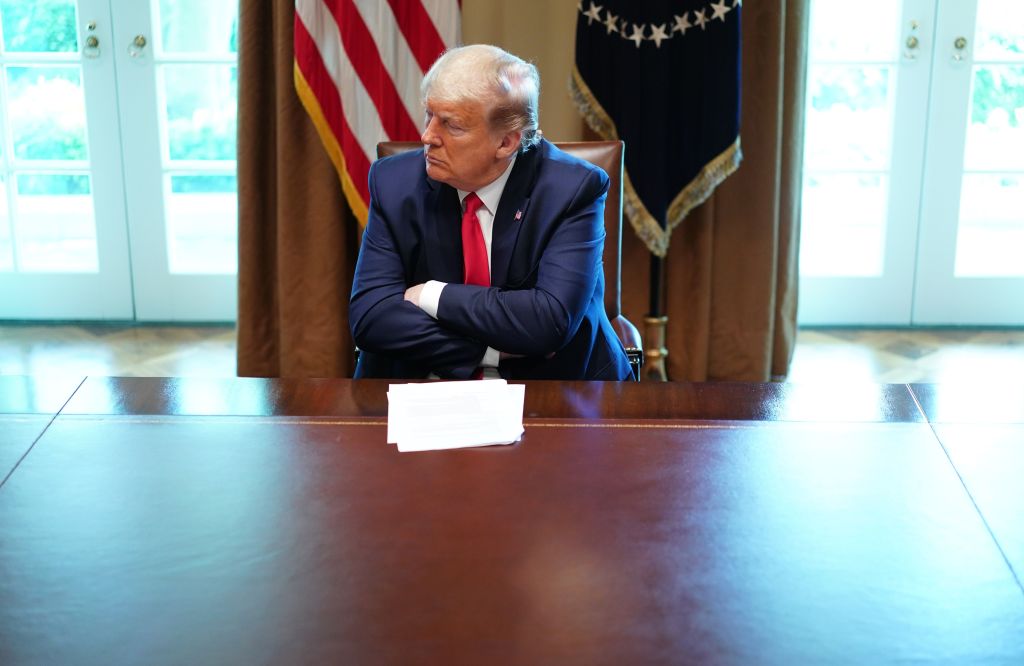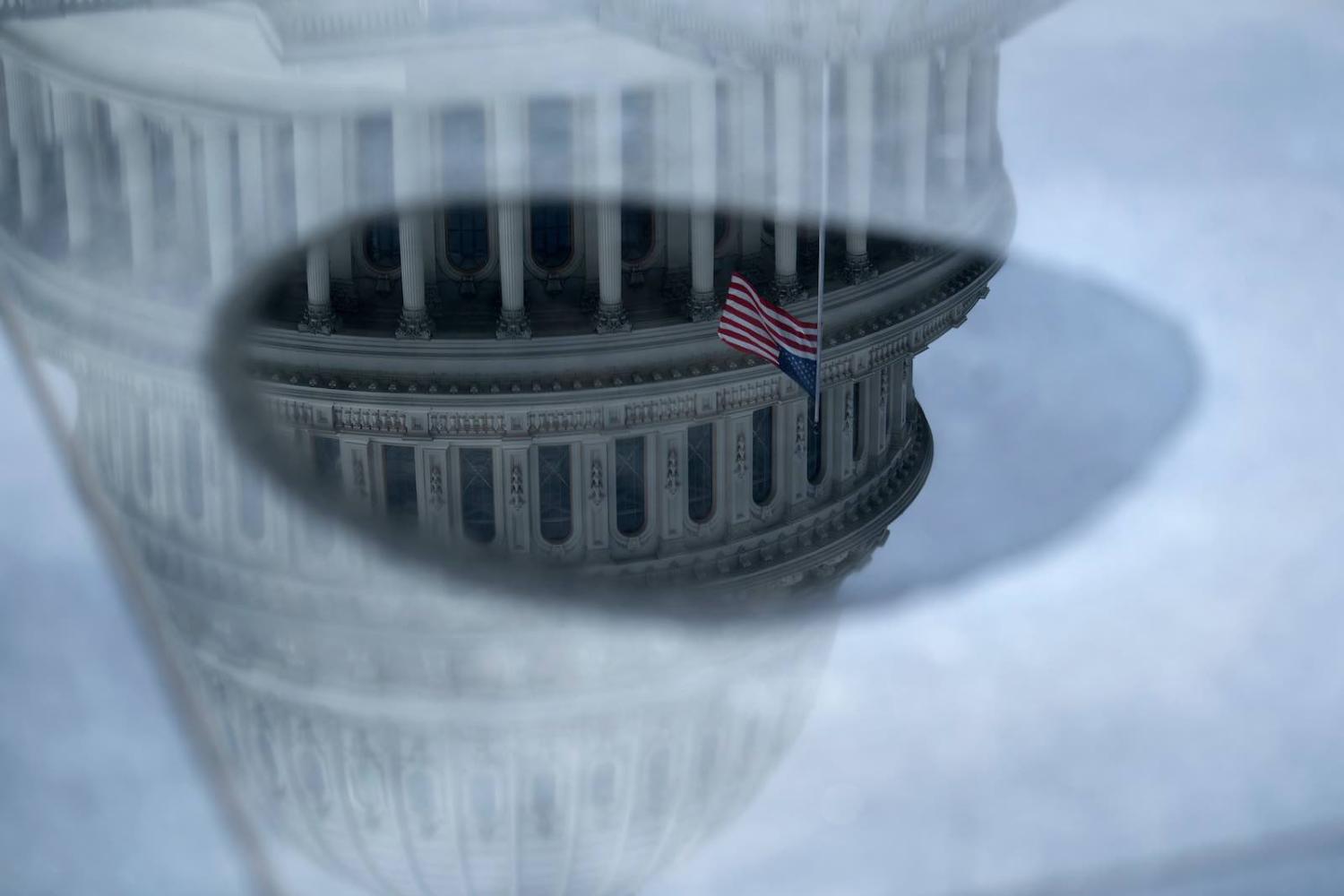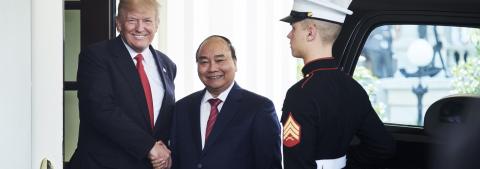Has the corona crisis already changed the world? Many people certainly seem to think so. From doomsday prognoses of a collapse into a bio-authoritarian dystopia to cheerful visions of a rejuvenated benevolent state, commentators the world over have already identified 2020 as the date on which a new world was born.
Needless to say, the midst of a crisis is hardly the optimal vantage point from which to enjoy a synoptic historical view over the events that rage outside. Even as restrictions are being cautiously loosened, we seem to stand only at the end of the beginning of this story. Coronavirus has already left mountains of economic wreckage in its wake, even while vast swathes of the globe still await the full force of the virus’ first wave.
What is most striking about the current moment is not that the United States failed the world at a critical time: what matters is that the world, by and large, did not even look to Washington as the crisis hit.
But the verdicts are already being written. In recent weeks, Western critics have penned multiple obituaries for the world we have known since 1945. Globalisation, some have argued, has passed its tipping point. Liberalism is a spent force, democracy all the more so. The sheer impotence of international institutions has been exposed. China has fully arrived. And the United States – now the epicentre of virus outbreaks – has proved itself unwilling and incapable of coordinating any kind of global response: a confirmation of its deteriorating capacities both at home and abroad. The corona crisis, so runs this view, has accelerated the advent of a world that is at once terrifyingly novel and uncannily familiar: novel because it is multipolar and uncertain, but familiar because it seems to play on old motifs of nations, big states, borders, self-sufficiency and paranoia about outsiders.
And nothing demonstrates this state of affairs more forcefully than Washington’s response. One does not have to search far in this crisis to find pronouncements of a “post-American world”. Few, I suspect, would dispute that the pandemic has – whether to a greater or lesser extent – exposed the diminishing global influence of the United States.

To be sure, this is evidently not a concern for Donald Trump himself, whose proud mantra of “America First” now looks indistinguishable from “America Only”. But it does reveal the weakening grip that Trump’s America holds on the global imagination. After all, what is most striking about the current moment is not that the United States failed the world at a critical time: what matters is that the world, by and large, did not even look to Washington as the crisis hit. In this respect, at least, the crisis has not changed the world: it has simply revealed some sobering truths.
Not all have been so hasty to write off the United States. For all of Trump’s apparent indifference to his country’s global image, the United States retains unparalleled reserves of global power. The numbers alone tell a remarkable story: American unemployment figures are rivalled in their unfathomable vastness by the sums of the government’s relief package and the Federal Reserve’s “booster shot” loan guarantee program. As Adam Tooze recently put it in the London Review of Books:
What we are witnessing in the American response to the crisis … is the gulf between the competence of the American government machine in managing global finance and the Punch and Judy show of its politics.
Be that as it may, this gulf between politics and power is nevertheless of vital importance to how the world will look in the coming years. America’s pretence (if not the reality) of moral leadership was always vital to its hegemonic position in the old world order. But, with Trump, the age in which American economic and military dominance was buttressed by a missionary moral language is now past, and it is exceptionally difficult to see how it might ever be reconstituted.
This shift did not begin with Trump, but he is every bit its embodiment. One’s mind is drawn back to a particular moment during the 2016 US presidential election, when Trump, questioned about his apparent ambivalence to the “killer”, Vladimir Putin, shot back with a case of whataboutery unprecedented for an American political leader: “There are a lot of killers”, Trump replied. “You think our country’s so innocent?” In two sentences, Trump unapologetically renounced that uniquely American sense of moral purpose in the world that had defined the rhetoric of every president since the Second World War. Four years on, the United States might still be the world’s dominant power – but it has become increasingly evident that this is altogether different from being its “leader”.
Not for some time has the connectivity of the world felt so threatened. But nor has it ever been so terrifyingly visible.
Shifts that have been taking place for some years are being exposed and accelerated as the pandemic spreads. For now, at least, the corona crisis is a public health crisis combined with an economic one and bound to generate transformative consequences in the political sphere as well. But it is not simply an event or an emergency. It is an unfolding process that is exposing in ever-starker ways the deep stress fractures in our global systems. It has told us much more about the recent past than it has about the future.
The reason for this is that the pandemic has not offered us a single narrative to tell. One can perhaps best visualise this global moment as the intersecting point between two temporal arcs: one showing the recursive, even cyclical time of politics, defined by the triumphant resurgence of nations and borders, the resuscitation of the muscular state, and the flexing of old-fashioned geopolitical rivalries; the other marked by the radical acceleration of global connectivity in science, in digital and surveillance technologies and – not least – in disease transmission itself. Not for some time has the connectivity of the world felt so threatened. But nor has it ever been so terrifyingly visible.
A pandemic was always a likely trigger for a “crisis of globalisation”. But is this really what we are witnessing? “Globalisation” was always a difficult – if not impossible – idea to pin down. It has been rethought and reconceptualised many times over. We would be making a fundamental error to assume that a hyper-connected world must necessarily be an American one. When we emerge from this phase in however many months’ time, the world we enter will be no less global and no less connected: but it may well be less American.

